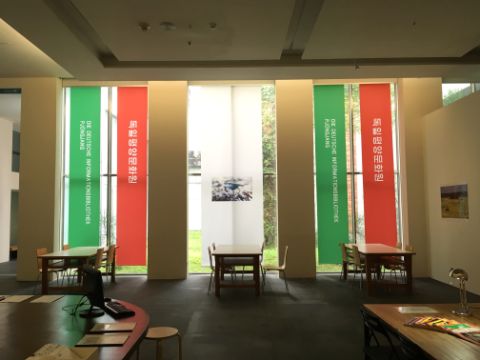The German Library Pyongyang (2012-ongoing)
With Sara Sejin Chang (Sara van der Heide)
Lecture Performance
Sun., 19.5.2024
17:00–18:00
Beatriz Nascimento Hall
Free entry
In English with simultaneous German translation

The German Library, Pyongyang. Courtesy of Sara Sejin Chang (Sara van der Heide)
By following the genealogy of a German Library opened in 2004 in Pyongyang, artist Sara Sejin Chang (Sara van der Heide) traces the continuities of relations between the German Democratic Republic (GDR) and communist North Korea, as part of the relations forged between ‘brother countries’ during the Cold War. Founded by the Goethe-Institut, this library was intended to offer access to German literature, music, arts, and language to citizens of North Korea with the belief that, based on the model of German unification in 1990, German culture could eventually contribute to overcoming the division between South and North Korea.
Through a lecture-performance, artist Sara Sejin Chang (Sara van der Heide) reconceptualizes the story of this library as The German Library Pyongyang, digging into the making of this soft power experiment. From early negotiations regarding the library’s content between the Goethe-Institut and the North Korean government (the latter was more interested in academic literature on science, technology, and medicine rather than culture), the initiative lasted only five years, perhaps always bound to failure. Accordingly, The German Library Pyongyang opens further questions on Eurocentric thinking and pervasive nationalist narratives.